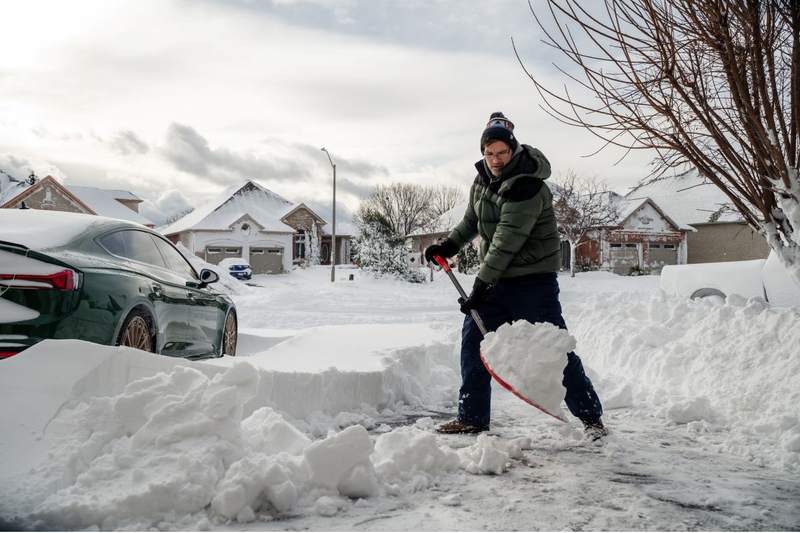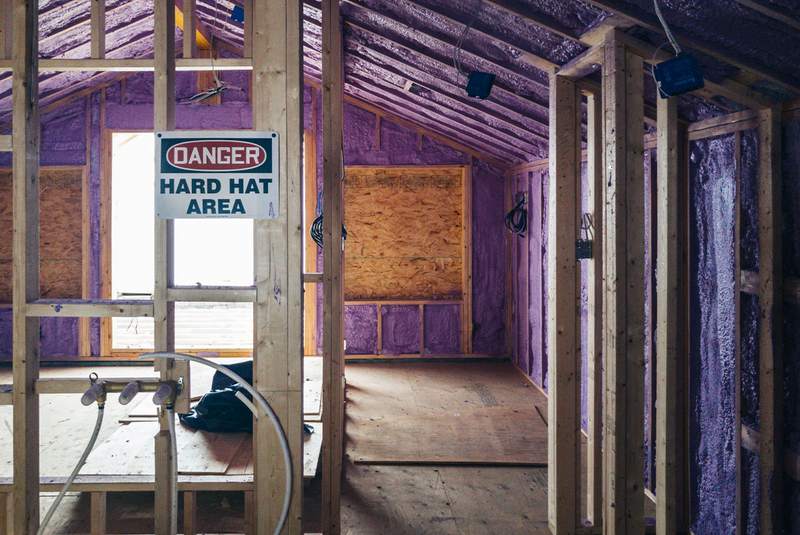If you’re new to the world of homeownership, you probably have encountered concepts that sound similar but actually are quite different. One such term is hazard insurance, which is part of most homeowners insurance policies covering damage caused by natural disasters and other perils.
Let’s take a closer look at hazard insurance and how you can make sure you’re getting the right coverage for your home.
Key Takeaways:
- Hazard insurance protects the structure of your home from a range of disasters known as “perils.”
- Hazard insurance won’t cover perils such as flooding and earthquakes, so in some cases, extra coverage must be purchased in addition to your primary coverage.
- The cost of hazard insurance depends on several factors, including how low you set your deductible and the age and location of your home.
What Is Hazard Insurance?
Hazard insurance is the part of your homeowners insurance policy that pays for damage to the structure of your home caused by natural disasters or other events. Your policy will refer to these risks as “perils.”
Hazard insurance only covers the actual structure of your home, not any of your personal items inside the house. Any damage done to your personal property should be covered by other components of your homeowners insurance policy.
As part of your standard homeowners insurance coverage when buying a home, you won’t have to pay extra for hazard insurance unless you need to amend your policy to include additional perils that may damage your home, such as hurricanes, wildfires, flooding or earthquakes. Keep in mind that every policy is different, so you’ll want to speak with your insurance agent to understand exactly what your policy covers as well as how much.
Hazard Insurance Vs. Homeowners Insurance
It’s easy to confuse hazard insurance with homeowners insurance. It bears repeating that hazard insurance is not a separate policy but a specific portion of your home insurance policy that covers your home’s structure. Other sections of your homeowners insurance policy cover losses from theft of personal belongings or medical claims if someone is injured while on your property.
What’s Your Goal?
Buy A Home
Discover mortgage options that fit your unique financial needs.

Refinance
Refinance your mortgage to have more money for what matters.
Tap Into Equity
Use your home’s equity and unlock cash to achieve your goals.
How Does Hazard Insurance Work?
In the event of a peril, such as a natural disaster, your hazard insurance will reimburse you for the cost of repairing damage caused by covered perils. Your policy may require you to meet a deductible before it will pay and will set a limit on how much it will pay.
Your hazard policy will include either named perils coverage or open perils coverage. Named perils coverage means your policy covers only the specific perils listed, so damage from perils not listed will not be covered. Open perils coverage means your policy only lists the perils it won’t cover, and everything else is included.
When your home is damaged by a covered peril, you would file a claim with your insurer for repairs. After you pay the deductible, your insurer will pay for the rest of the cost of repairs up to the coverage maximum.
Let’s say your policy includes hail as a covered peril and several windows break and need to be repaired after a hailstorm. After you pay your deductible, your insurer will pay for the rest of the cost of repairing windows up to the maximum coverage for that peril.
Ready To Become A Homeowner?
Get matched with a lender that can help you find the right mortgage?
What Does Hazard Insurance Cover?
Most homeowners hazard insurance policies cover damage caused by common perils such as:
- Fire
- Windstorms or hurricanes
- Lightning
- Tornadoes
- Hail
- Smoke
- Snowstorms
- Ice and sleet
- Falling objects
- Damage caused by vehicles or aircraft
- Riots
- Explosions
- Theft and vandalism
- Volcanic eruptions
- Sudden and accidental water damage
- Malfunctions of water-heating systems, air-conditioning units or automatic fire-protection systems
- Damage from artificially generated electricity
Additionally, hazard insurance for home protection typically also covers other structures on your property, such as garages and tool sheds, if perils cause them structural damage.
Take The First Step To Buying A Home
Find a lender that will work with your unique financial situation.
What Doesn’t Hazard Insurance Cover?
Hazard insurance usually excludes damage from flooding or earthquakes. Depending on your flood risk, your mortgage lender may require you to get a separate flood insurance or earthquake policy, either from the government or a private insurer.
The Federal Emergency Management Agency offers a Flood Map Service Center tool to determine if an address is in a FEMA-designated flood zone.
Along with water damage from flooding, hazard insurance generally won’t cover:
- Pest infestations (e.g., termites)
- Mold damage
- Mudslides and landslides
- Personal property damage
- Liability claims
How Much Does Hazard Insurance Cost?
The size and location of your home, as well as which perils are covered, are important factors in determining your hazard insurance premium. The more your home is worth and the older it is, the more the insurance will cost.
As we’ve established, hazard insurance is a component of homeowners insurance, not a separate policy or premium, so let’s look at homeowners insurance prices. As of June 2024, the average annual premium for homeowners insurance in the U.S. for a new house is $1,449. The average cost to cover a 45-year-old house is $2,590.
The size of your deductible also influences your hazard insurance premium. A lower deductible means you’ll pay less out of pocket in a hazard-related crisis, but that often comes with a higher premium. U.S. homeowners insurance with a $500 deductible and $250,000 coverage costs $2,232 per year on average. Raise that deductible to $5,000, and the yearly cost drops to $1,624.
Any additional coverage you choose, which includes raising the limits of your coverage, will increase your insurance costs.
How Do You Know How Much Hazard Insurance You Need?
You’ll generally want enough insurance to cover the cost of rebuilding your home from scratch if needed.
Before deciding on how much coverage you need, research the risks associated with your home’s location. If your home is at risk of regular damage from disasters, you may want to reduce your deductible so you’ll pay less out of pocket if you have to file a claim.
Hazard insurance doesn’t cover earthquakes or floods, so you may want to buy an additional policy if your home’s near a fault line or located in a flood plain.
Ask your real estate agent for advice on how much coverage you’ll need to avoid costly disasters.
How Do You Buy Hazard Insurance?
You can shop around for quotes from multiple insurers to find the best policy for your needs and budget. Insurance costs vary widely depending on where you live and the insurance requirements in your state.
Most premiums are paid on an annual basis, but many homeowners pay it as a monthly fee added to their mortgage payment. The lender keeps those funds in an escrow account and pays the annual premium on the homeowners’ behalf when it’s due.
If you are unable to find or afford a private homeowners insurance property for your home, see if your state offers a Fair Access to Insurance Requirements plan. FAIR plans are designed as a last resort option for homeowners who are unable to get basic insurance coverage.
FAQ
Here are answers to common questions about hazard insurance.
The Bottom Line
Before buying a home, make sure you find an insurance company you trust to cover you in an emergency. Finding the best level of coverage to protect your assets is equally important. Consider your deductible and the risk of specific hazards in your area before choosing a policy that accommodates your personal budget.
More From Quicken Loans:

Michael Rosenthal
Michael Rosenthal is a writer and editor based in Los Angeles. He brings a decade's worth of experience working in finance, tech, education and entertainment. In his free time, he enjoys both table tennis and regular-size tennis.












